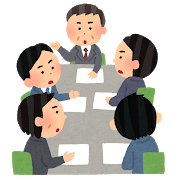5 things you shouldn't do when 1 on 1 with Japanese

1 on 1 meeting at workplace in Japan
The 1 on 1 meeting
The 1 on 1 meeting method is said to be culture that originated in Silicon Valley, which supports human resources development.
In Silicon Valley, which is war for talented engineers and other human resources, there should be needs to value face-to-face communication because of the advanced technology.
There is no doubt that the fact that famous Silicon Valley companies such as Google, Intel, Microsoft, and Adobe Systems are known for introducing 1on1 also contributes to the 1 on 1 boom of Japanese companies.
In Japan, 1 on 1 is popular word and everyone can understand if you say
"Ok, 1 on 1 Yarimasu"
How long is Japanese 1 on 1?
It depends on company or organization but usually 3o min or around. if you set 1 on 1 over 1 hour, it will be quite a long.
Japanese is willing to accept 1 on 1 meeting?
Yes,1 on 1 is common in Japan. I depends but some people tend to reject if 1 on 1 is still boring.
Here are 5 things you shouldn't do when launching 1 on 1 with Japanese.
1- Do not ask for age
Nowadays, as in any country, it's rude to ask for age. Japanese people are not so surprised when asked about religion, but they are generally non-religious and will not answer.
No problem about asking about family.

2- Do not act immediately with misunderstanding "yes"
The Japanese often nod. And the Japanese show a pretense that they agree. It is a habit that they have acquired because they have lived in the top-down culture. So it's better to simply interpret it as Yes and not do it right away. Listen "Are there any other opinions?" at least about three times.
In particular, Japanese are not good at English in the world. It depends on the person, but sometimes he nods even though he doesn't understand it at all. Let's watch out.
3- Act without checking related figure
The Japanese live in a high-context society. From their birth, they do not define well in low-context terms. For example, if your subordinates say "it's working!", Don't believe it right away. Check the numbers properly. Whether it was possible or not is something that the boss should grasp as a number, not as a judgment of his subordinates.

4- Do not ask too private issue
Most topics are not a problem for Japanese people. However, it is safer not to ask the following points.
- Lover
- Marriage
- Sickness
- Educational background of their children
5- Extremely early morning or late night meetings
What Japanese people hate most about foreign-affiliated companies is the fluctuation of meeting time.
Japanese people like to live at relatively regular times and are likely to be cared for by their families at night and in the morning. Therefore, frequent meetings during times outside of normal working hours will reduce their motivation.



